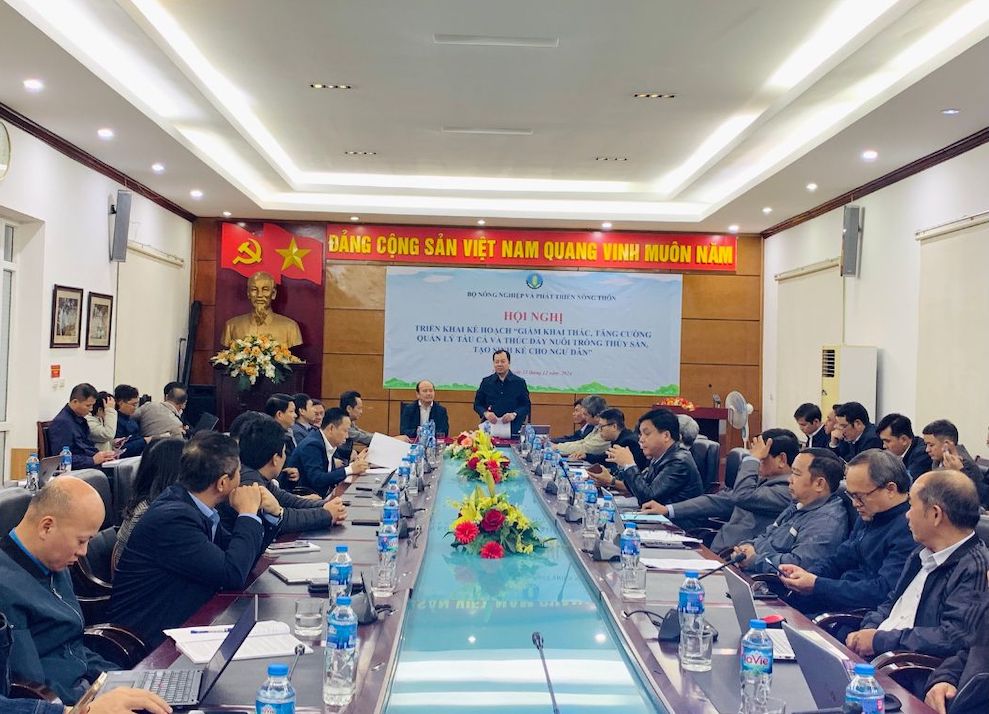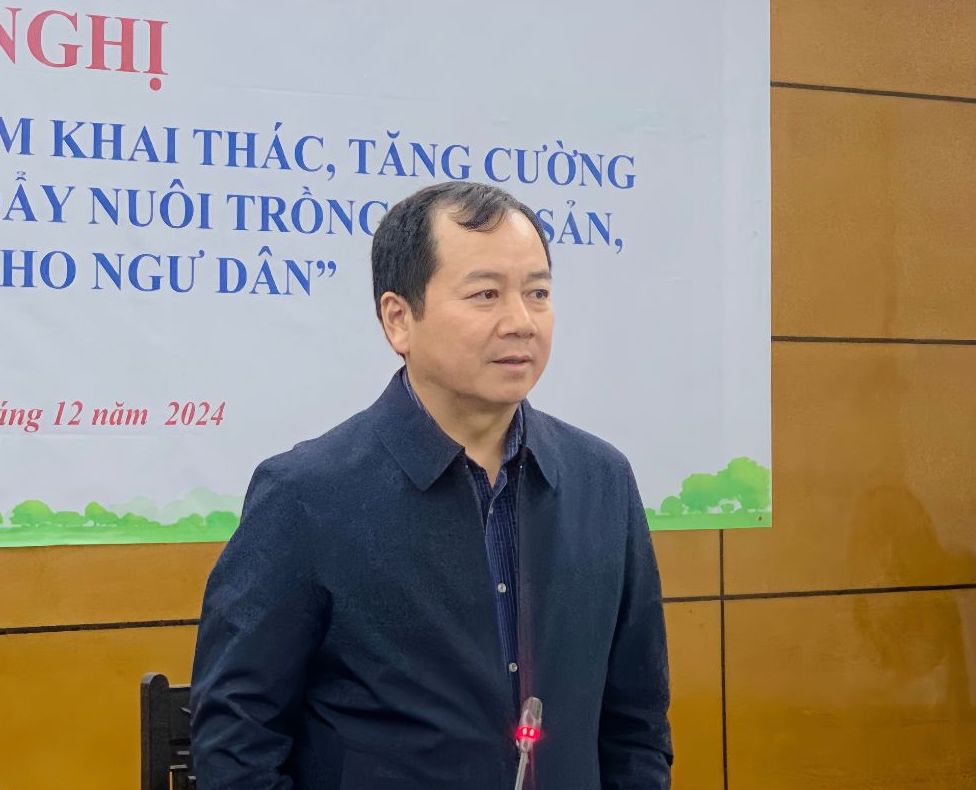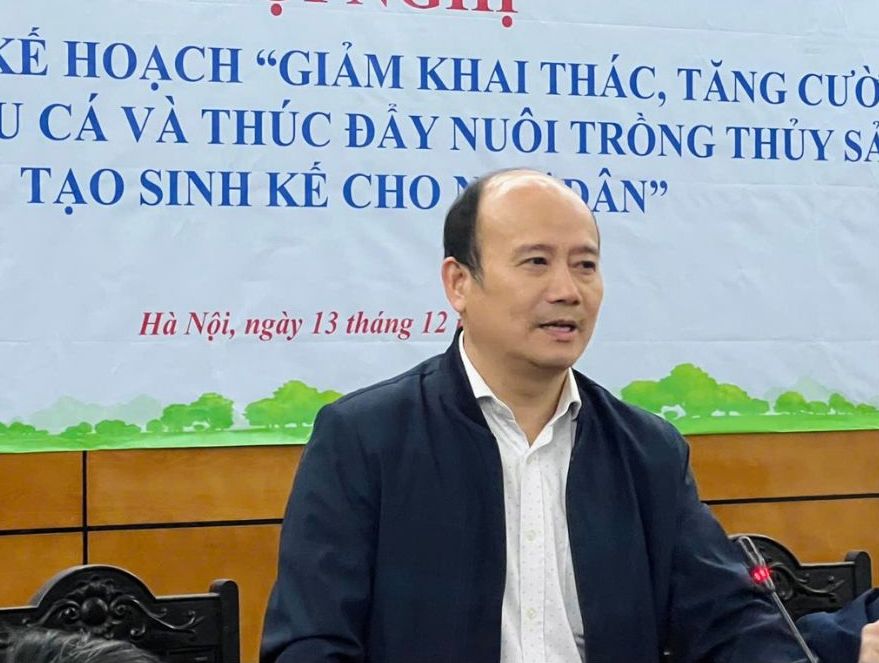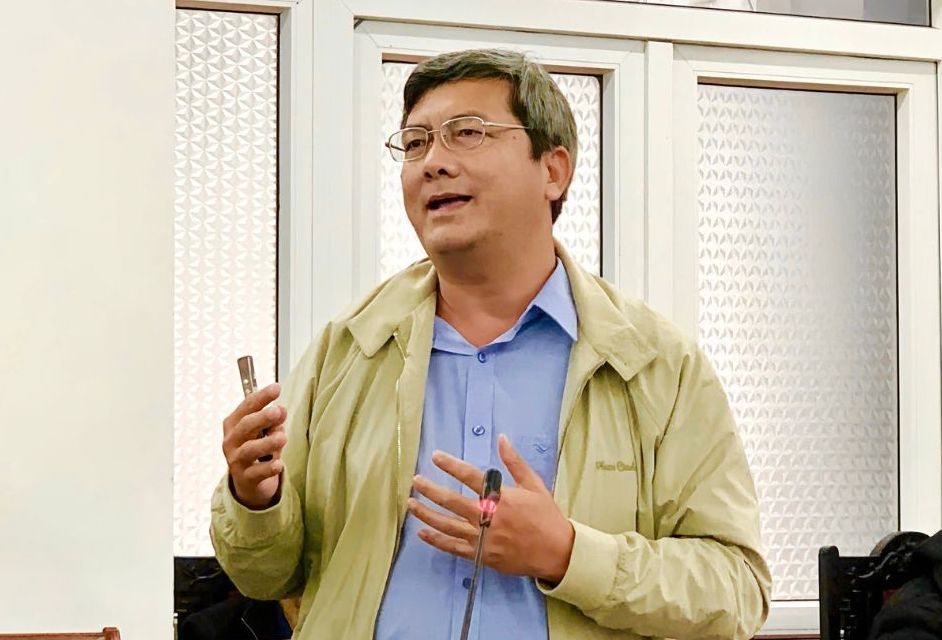On December 13, the Department of Fisheries (Ministry of Agriculture and Rural Development) held a Conference on the implementation of the plan "Reducing exploitation, strengthening fishing vessel management and promoting aquaculture, creating livelihoods for fishermen" to evaluate the results of the implementation of the plan to reduce exploitation, strengthen fishing vessel management and promote aquaculture, creating livelihoods for fishermen.

According to the Department of Fisheries, after more than 3 years of implementing the Fisheries Development Strategy and nearly 2 years of implementing the Occupation Conversion Project, authorities at all levels and economic sectors have developed and issued plans to implement the strategy, the Occupation Conversion Project and implemented a number of livelihood conversion models in coastal fishing communities towards reducing exploitation, increasing aquaculture and promoting marine conservation, protecting and developing aquatic resources.
Some career conversion models have shown positive results, attracting the attention of the fishing community and other economic and social sectors in localities such as Quang Ninh, Quang Binh, Ha Tinh, Quang Nam, Binh Dinh...
Regarding marine aquaculture, up to now, marine aquaculture has initially attracted the attention of domestic and foreign enterprises and investors participating in the industry chain. Many new and modern technologies are applied in marine aquaculture, such as: closed-loop aquaculture technology, environmental control; industrial cage aquaculture technology, etc.

Regarding the livelihood transformation of fishing communities, localities have identified trawling and tuna gillnetting as occupations that harm resources and ecosystems, and have developed specific criteria to limit development, especially trawling. Therefore, coastal provinces and cities have effectively implemented the reduction of trawling fishing vessels with a maximum length of 15m or more, and fishing vessels with a lifespan of 15 years or more...
Identifying the types of occupations that are limited in development and implementing the reduction of fishing vessels engaged in trawling and tuna gillnetting has contributed to adjusting and transforming the structure of seafood exploitation towards gradually reducing seafood exploitation occupations that have a great impact on aquatic resources, the environment, and ecosystems...
In addition to the achievements, aquaculture and fisheries exploitation still face many challenges and problems. "Resolving environmental issues and climate change in fisheries activities still faces many limitations and difficulties. In addition, there are sovereignty claims in the East Sea, increasing technical barriers (EC yellow card) or unsustainable development.
"Fishing ground conflicts; untapped community resources; declining aquatic resources; weak post-fishery service infrastructure; fragmented and spontaneous production... are also challenges for the fisheries sector," said Vu Duyen Hai, Deputy Director of the Department of Fisheries.

According to the Deputy Director, to promote the efficiency of aquaculture exploitation in the coming time, it is necessary to reduce the fleet by assessing aquatic resources, determining the appropriate fleet structure for the resources of each sea area, inventorying and classifying the existing fleet, closely monitoring the output loaded and unloaded through the port...
Regarding increasing marine aquaculture, it is necessary to develop synchronous infrastructure, train skilled workers, develop product value chains and marine aquaculture markets. At the same time, it is necessary to strengthen marine conservation such as reviewing and supplementing regulations on resource protection: production quotas, prohibited species, prohibited occupations, prohibited areas, etc.
"In particular, for livelihood conversion for fishermen, it is necessary to raise awareness and identify suitable occupations for local conditions. In addition, it is necessary to provide training and coaching to support career conversion, implement models and projects to convert fishermen..." - Deputy Director of the Department of Fisheries Vu Duyen Hai emphasized.

Dr. Tran Minh Hai - Vice Principal of the School of Public Policy and Rural Development (Ministry of Agriculture and Rural Development) - assessed that the application of the cooperative model will help promote aquaculture, management, protection and sustainable exploitation of aquatic resources, and create jobs for fishermen.
"The cooperative model is to support each other to develop, thereby providing a variety of services such as production, life, trade and services. In which, production includes management, protection, exploitation, processing and trading of aquatic products; life includes necessities; trade - services such as train ticket agents..." - Dr. Tran Minh Hai expressed his opinion.











